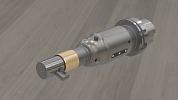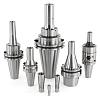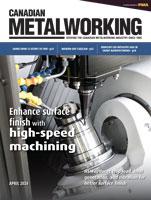CEO
- FMA
- The Fabricator
- FABTECH
- Canadian Metalworking
A PSA to Canada’s manufacturers
Innovation and investment in technologies won’t work without a capable workforce
- By Jayson Myers
- February 1, 2022
The business of making things is changing and moving quickly.
Many manufacturing companies in Canada are advanced because they have the strategy, processes, technologies, and people to compete and grow in a dynamic global economy.
The pandemic underlined the importance of having made-in-Canada solutions in biomanufacturing and health care, as well as in electric vehicles, hydrogen, clean tech, automation, and robotics, along with the capabilities required to solve and address some of the world’s biggest challenges.
We need products that save lives, address climate change, and solve food insecurity. And we need to be able to manufacture them in Canada.
Use Technology to Add Value
We define advanced manufacturing as the capabilities a company needs to have to be competitive in a rapidly developing digital economy. The definition is not just about technology itself, it’s about new business models, efficient processes aligned to business objectives, the way people use technology, and the value it adds for customers.
Our mission at Next Generation Manufacturing (NGen) is to build world-leading advanced manufacturing capabilities for the benefit of Canadians. We connect the dots, from world-leading research and science to where manufacturing is going in the future. It’s a collaborative effort. We bring together the best Canadian research, technologies, and manufacturing capabilities to develop, scale, and productively deploy unique options in manufacturing and commercialize them in global markets.
Canada’s advanced manufacturing economy is built on a strong innovation ecosystem that includes world-leading scientific and technological research and a high concentration of leading-edge technology providers. Still, we can do a better job of bringing all the assets together to create something that is truly unique and supports the Canadian economy.
The truth is, we don’t have a well-connected network within that ecosystem. We can do much better by connecting stakeholders to capitalize on new business opportunities beyond the reach of any one company operating on its own.
Innovation Drives Down Technology Costs
Innovation is driving down the cost of technology applications, supply chains are morphing into interconnected value networks, while widespread market disruptions are creating new business opportunities. Advanced technologies are revolutionizing manufacturing and enabling manufacturers to address critical business challenges.
However, it’s not as straightforward as that.
NGen conducted research into why it can be difficult for some companies to adopt new technology. Conducted with Stats Canada, this survey of about 6,000 manufacturers from across the country found that 83 per cent had invested in advanced technologies, but when asked if they had achieved their business objectives, more than half said no.
Therein lies the disconnect.
Investing in technologies without management capabilities and a skilled workforce is ineffective at best and highly disruptive and unproductive at worst.
Real competitive advantage lies in how Canadian companies manage technologies and commercialize results that add value for customers. Manufacturers need to leverage advanced digital technologies, materials, and production equipment to make the biggest impact for their business. Future-sighted business leadership is key in identifying new value-adding opportunities and ways to improve operational excellence.
But above all, it is the people and the skills and competencies they bring as they work together that will make the difference.
We have a large and growing skills gap that must be addressed urgently. One-quarter of Canada’s manufacturing workforce will retire within the next 10 years. Manufacturers need to boost productivity by 25 to 30 per cent over the next decade simply to keep output levels where they are today – even more if they are to grow their business.
Deployment of automation and digital technologies is essential. Manufacturers must not only attract younger workers into the workforce, but make sure that they have the skills required to manage the business, processes, and tools that will lead to future business growth.
We need a workforce that can step up and work with digital technologies, which is why NGen launched the “Careers of the Future” campaign, which is designed to attract the next generation of workers into the world of advanced manufacturing.
We encourage more companies to support this campaign and utilize it as a platform to promote jobs in their businesses. Every company and every Canadian needs to see this as a critical component of the way forward.
We can give Canada a strategic advantage by building the workforce of the future. How we address this challenge is of vital importance, not only for the future of manufacturing in Canada, but for the economic well-being of every Canadian.
Jayson Myers is CEO, Next Generation Manufacturing (NGen), 175 Longwood Rd. S., Suite 301, Hamilton, Ont. L8P 0A1, info@ngen.ca, www.ngen.ca.
subscribe now


Keep up to date with the latest news, events, and technology for all things metal from our pair of monthly magazines written specifically for Canadian manufacturers!
Start Your Free SubscriptionAbout the Author
- Trending Articles
Identifying the hallmarks of a modern CNC

Tooling for spot facing and counterboring is completely customizable

CTMA launches another round of Career-Ready program

Collet chuck provides accuracy in small diameter cutting

Sandvik Coromant hosts workforce development event empowering young women in manufacturing

- Industry Events
MME Winnipeg
- April 30, 2024
- Winnipeg, ON Canada
CTMA Economic Uncertainty: Helping You Navigate Windsor Seminar
- April 30, 2024
- Windsor, ON Canada
CTMA Economic Uncertainty: Helping You Navigate Kitchener Seminar
- May 2, 2024
- Kitchener, ON Canada
Automate 2024
- May 6 - 9, 2024
- Chicago, IL
ANCA Open House
- May 7 - 8, 2024
- Wixom, MI

















